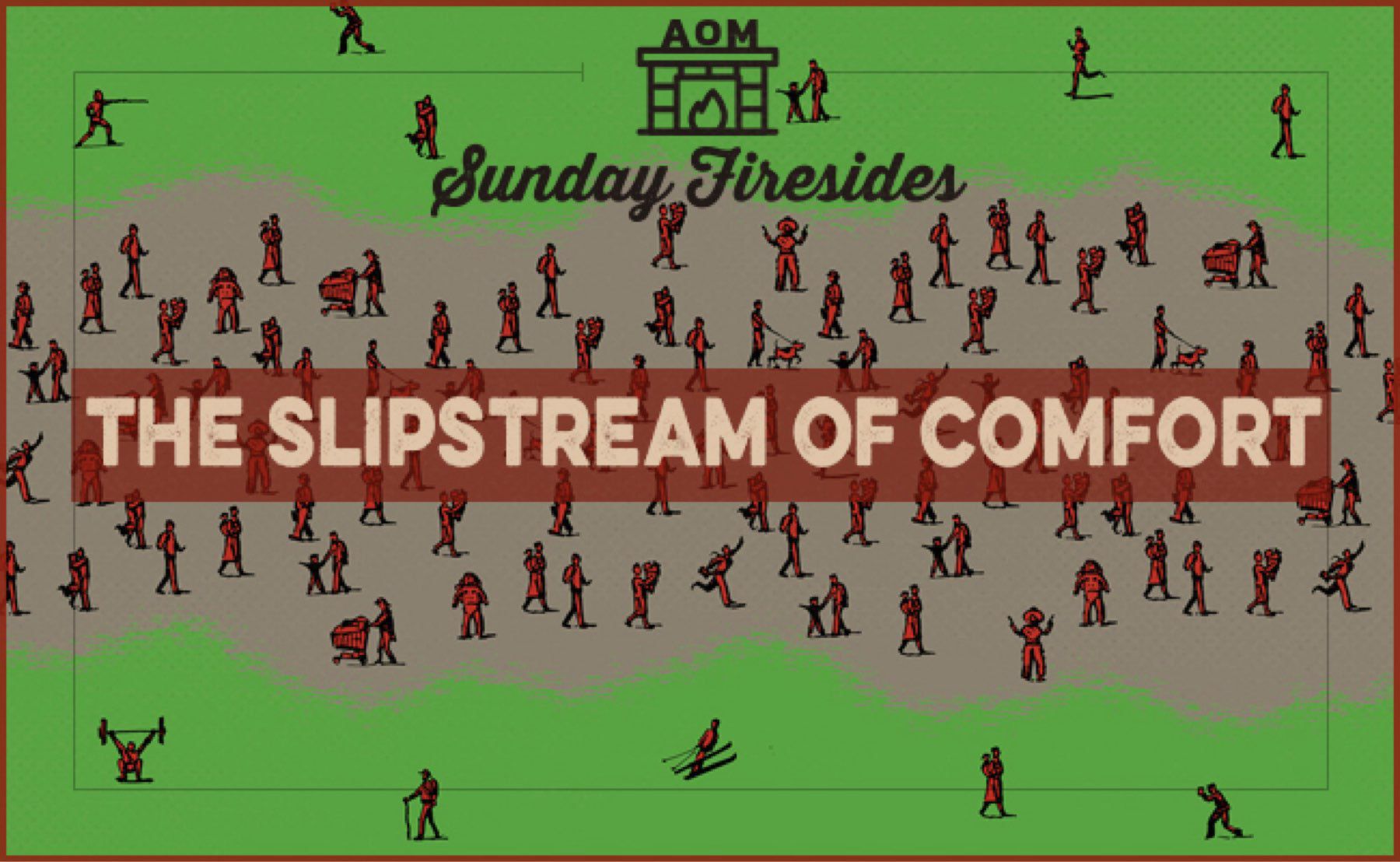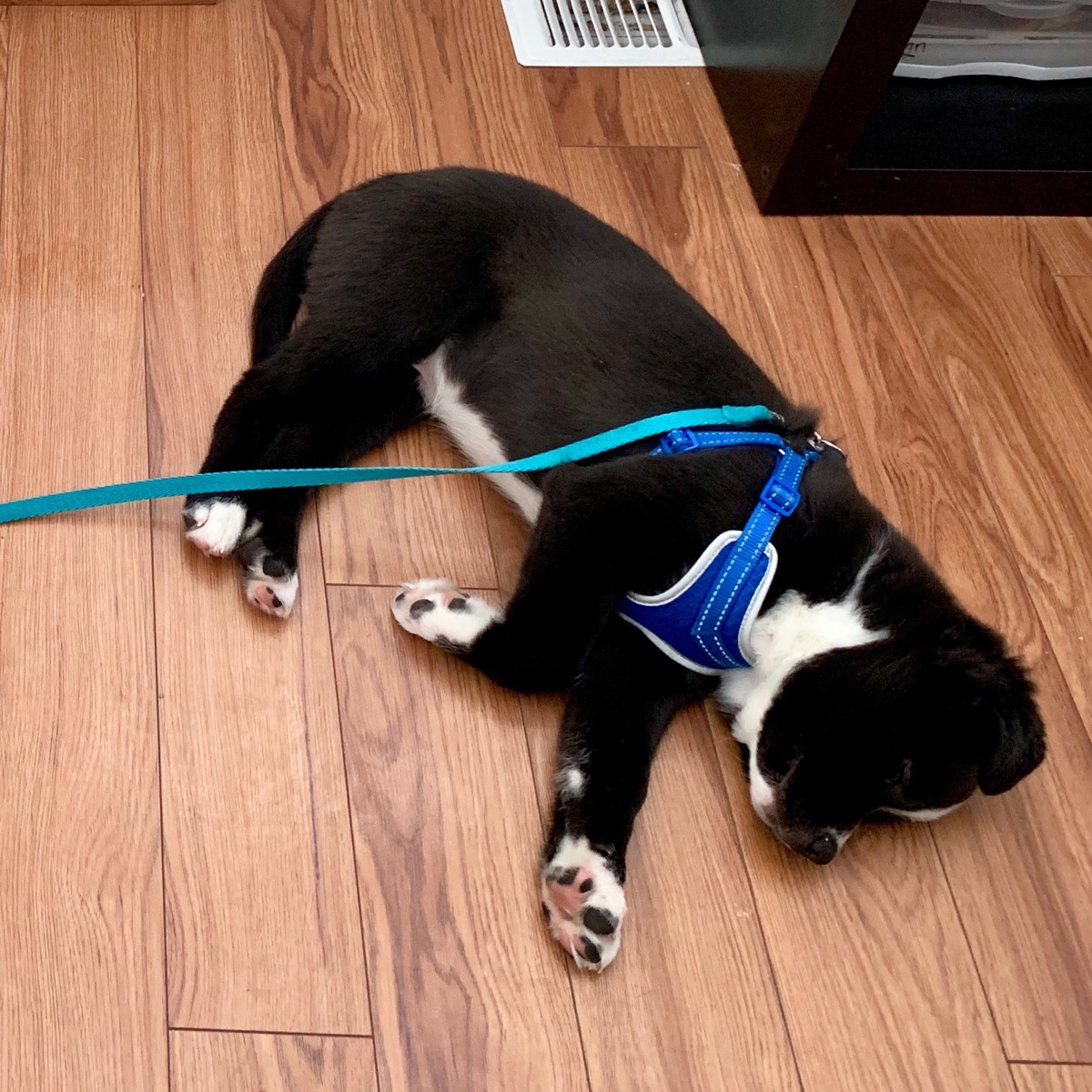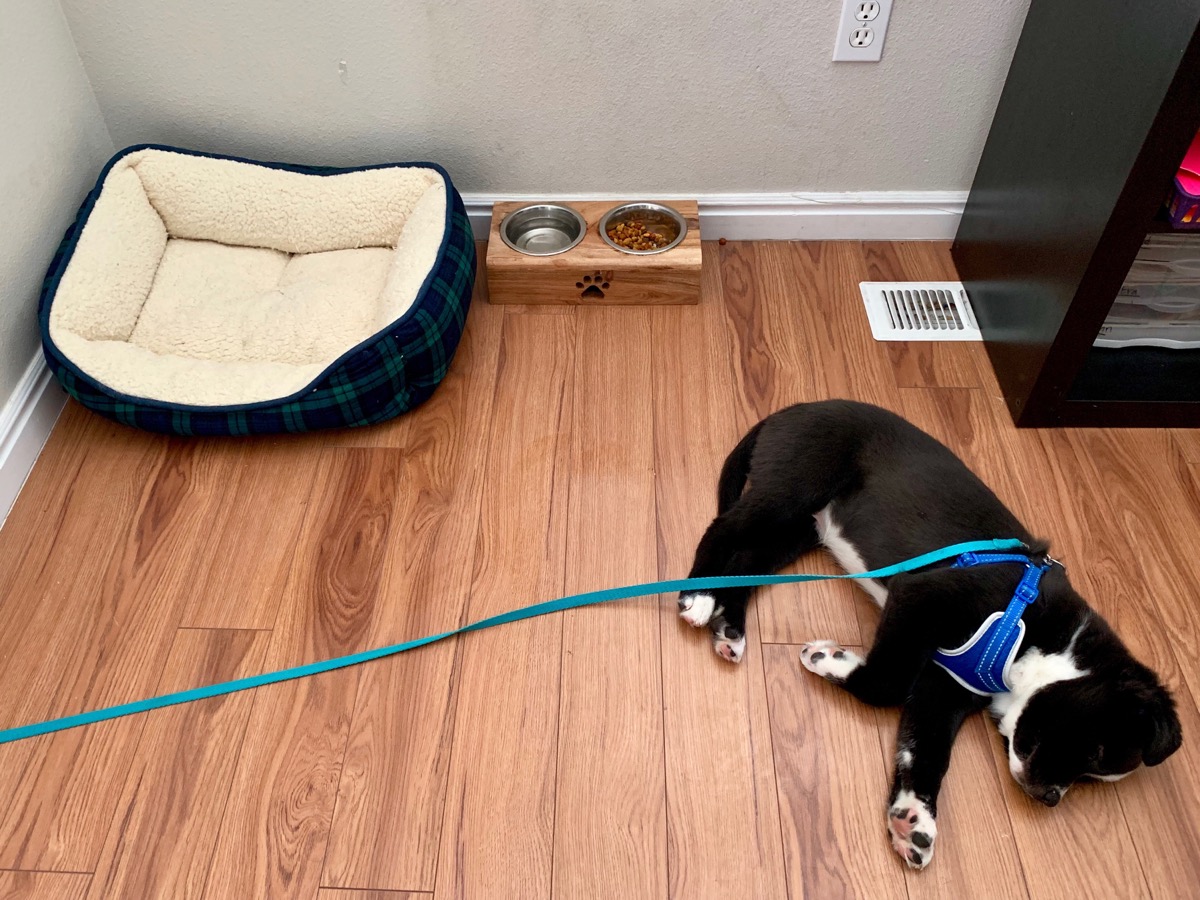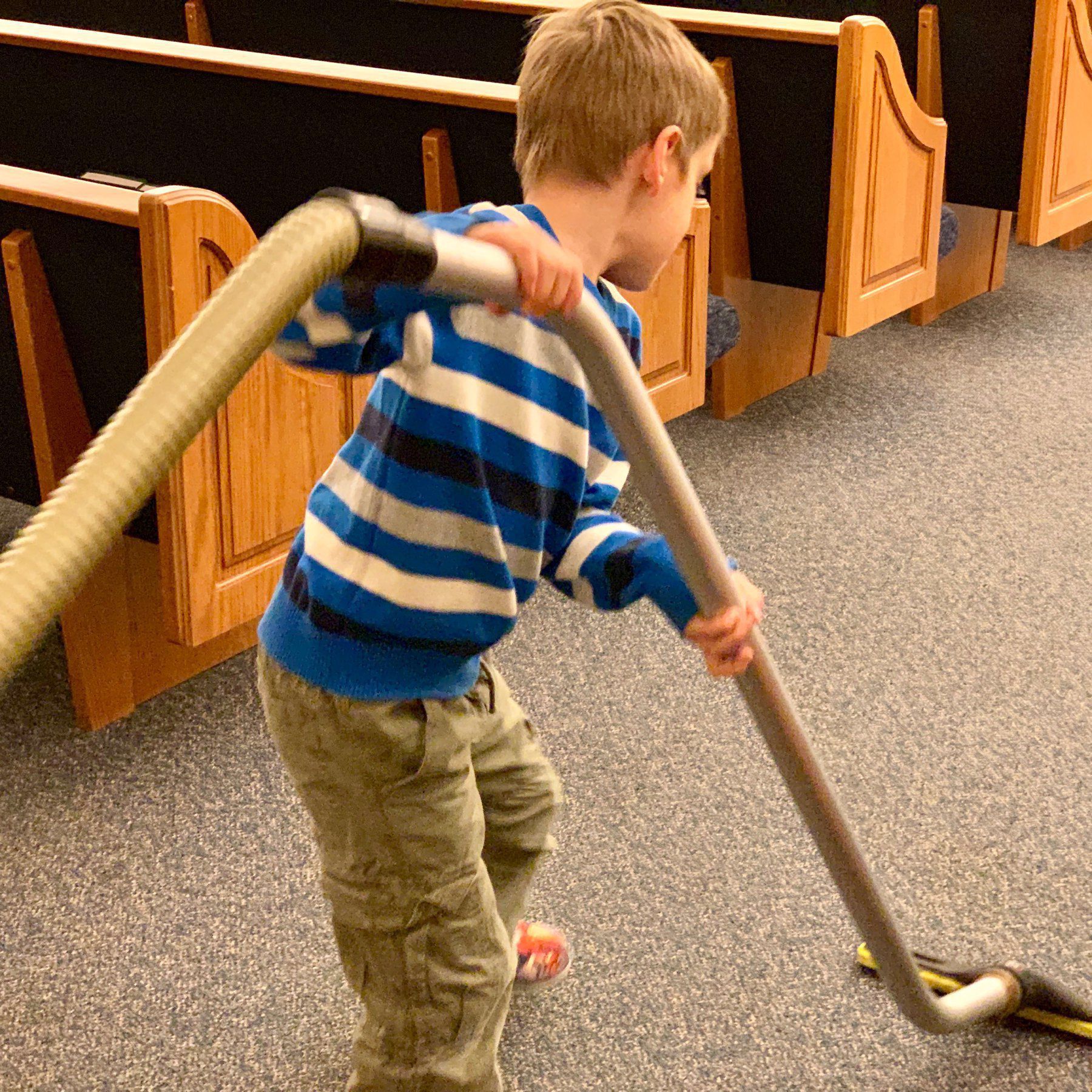tl;dr Hi, I’m Ben, and I have OCD. 👋
I am not gay. I am happily married to the woman of my dreams, and we have six wonderful children. My coming out is of an entirely different nature. Hopefully no one who is gay is offended at my co-opting the phrase “coming out”—it felt the most appropriate for the emotional struggle I have found in coming to terms with this huge part of my life and my identity.
There is no one label that defines who I am. But I have realized that having OCD has defined a great deal of my life to this point. It feels like a big step to be able to finally acknowledge that, both to myself and to others. So, today I am announcing that I have obsessive-compulsive disorder, along with generalized anxiety disorder and panic disorder.
Having vs. being
When I first starting writing this post, I wrote that I am OCD, but as I kept writing, it felt better to change it to say I have OCD. That minor change in language represents a major change in my mindset, and one that I hope to preserve, or at least to come back to again and again. This issue (or any other!) does not define me, but it is something that I carry and has shaped my experience.
Some background
I grew up a member of The Church of Jesus Christ of Latter-day Saints, and that continues to be an integral part of my life. Like in many Christian faiths, we were taught about faith and works. “Faith without works is dead” (James 2:26). Unfortunately, our culture, both in my church and in my family, was one of absolutes as well as black and white thinking. Every choice was righteous or evil. Every decision brought me closer to Satan or the Savior. There was no room for gray.
In this world, I thrived. I embraced black and white and one of my favorite scriptures was Revelation 3:16, “So then because thou art lukewarm, and neither cold nor hot, I will spue thee out of my mouth.” By no means was I perfect. But I sure tried. And when I failed, I made sure that I knew it loud and clear. In many ways, I was not alone in ensuring this. When I brought a report card home with six A’s, and an A-, I knew the reception would be, “What’s wrong? Why did you get an A-?” That became the voice inside my head.
Unwittingly, I pushed myself harder and harder, and further and further into a dark place. Part of the problem was that not only was my behavior not seen and understood as unhealthy, but it was rewarded and reinforced. Years passed and I met an amazing woman, and somehow she agreed to marry me, and we started a family. I worked hard to be a good husband and father. More accurately put, I berated myself for every shortcoming when I was not a perfect husband or father.
My journey
Last April, I had the good fortune to attend the Peers Conference in Austin, Texas. On the first day, we participated in breakouts that were like group therapy sessions. I shared some of my thoughts and feelings about work, and the dissatisfaction I was feeling, and the facilitator suggested that my concerns had nothing to do with work. He suggested that I find a counselor, particularly one who shared my faith and understood that part of my life. I was taken aback—counseling was not something I had ever considered before.
Over the summer, I began to see a chiropractor for the first time. I then experienced my first panic attack, and was referred to a fantastic therapist by my chiropractor. After the first visit, I told my wife, “It’s like speaking with a skilled friend.” My therapist saw through me and could identify so many of my smokescreens and crutches. As we ended the first session, she said (I’m paraphrasing a bit because I don’t remember her exact words), “You do not have perfectionistic tendencies as you suggested. You are a violent perfectionist and it is damaging you and your relationships.”
Part of the challenge for me was in accepting that my OCD is different than what I expected. I don’t have to turn the lights off twenty times. I don’t have to wash my hands endlessly (unless, of course, I get something on them!). One of my favorite TV shows is Monk. I identified with so much of what he feels and says. But at the same time, I found my own situation to be so different than his that I felt sure that this is not what I have.
As an aside, my wife and I were in the middle of rewatching all eight seasons of Monk when I experienced my first panic attack and started seeking help, and we decided that I had better take a break until I feel less suggestible. 😂
As I met with a psychiatrist and started medication, I experienced the onset of panic disorder. We experimented with medication, and I am on my fourth try and finally starting to feel some relief. As my therapist has helped me see, part of the challenge with OCD is that it works…until it doesn’t. I have developed compulsions and coping mechanisms that are so ingrained that I don’t even recognize them as such yet. But the journey has begun.
My current state
I would like to think that I hit rock bottom a couple weeks ago. After a day with three panic attacks, and some unsafe thoughts, I admitted myself to a crisis center for a night to make sure that I was stable and safe. Since that point, I have continued to improve. I am surrounded by loving and caring people who have given me unconditional support.
Some days, all that support makes it worse. I told a support group this week that each new relationship feels like another chance to let someone down. But I have come to accept that.
The truth is that I will let people down. I am not enough. The beauty is that I don’t have to be. The Gospel of Jesus Christ is so much more important and impactful than the culture in which I grew up. I don’t have to be enough because I have a Savior who is enough. That teaching got lost for me somewhere along the way, and I still struggle to hold on to it. But I have hope.
Looking forward
Some of my fantastic support comes from people at work. My boss and HR leader suggested that I consider taking some time off to heal, which I have done. So I am on extended leave from work. I have stepped back from my volunteer church assignment. I am getting more counseling and starting to take steps toward healing.
I am a long way from better. But I finally realize and accept that. It took me a while to get to this point, but I am now fine telling anyone about my situation. It is no longer a badge of shame. And it is certainly not a failure.
I am Ben, and I have OCD.
And that’s ok.
P.S. I have tagged this post with an emoji: 💮. I plan to post occasionally about my state or my progress and will use this emoji to identify mental-health related posts. This should make it easy to find the ones that you might want to read (or skip!).
I really liked this note on Emojipedia, which is why I chose it:
The Apple artwork contains Japanese text on the inside that translates to mean “Well Done” or “You did very well”.
It might not be the perfect emoji for this purpose, but that is beautiful in its own way. I need to embrace a little imperfection in my life.





 *A six-year-old husband-in-training*
*A six-year-old husband-in-training*